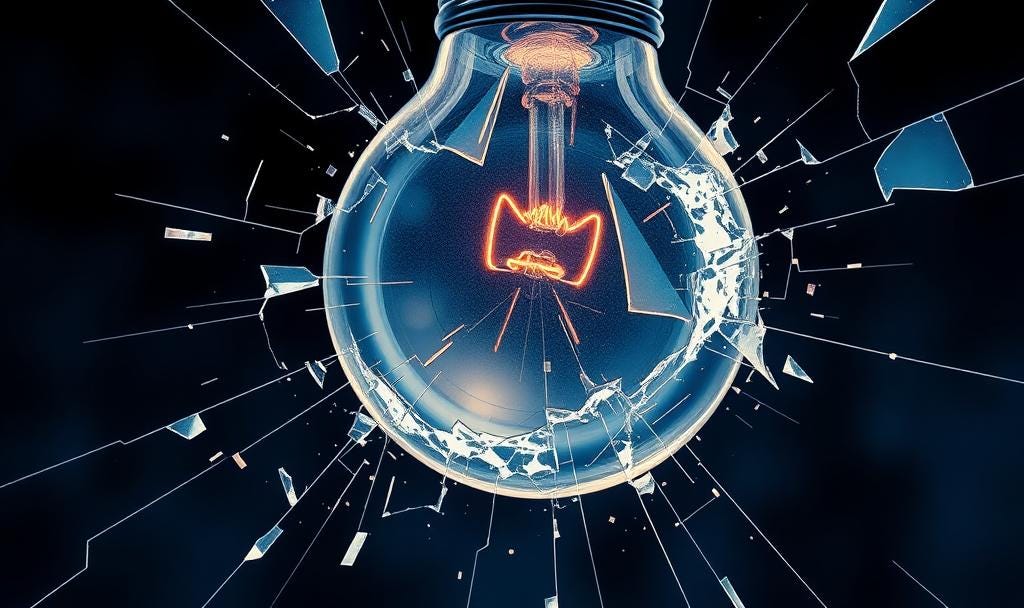We've confused having answers with understanding problems
When getting all the answers makes you look dumber.
People argue with each other every day on the Internet. They think they know better than the other person. What used to be a platform to share information and help others has also become a fighting arena.
The fact that many people online are trying to take each other’s heads is based on many aspects. Either they’re bored, or they need to vent their personal anger onto a stranger.
Maybe they’re trying to save the world by changing people’s lives through… commenting?
It’s funny that there are people who take hours just to argue a futile and redundant point with people whom they are never gonna meet in their lives. Whose sole purpose has nothing to do with them.
But what’s even funnier is that many of these users think they’re actual experts, and that their opinion should be heard and praised, because they saw a 20-minute YouTube video on that specific matter.
We've confused having answers with understanding problems.
People aren’t very aware that context plays a huge role in debating and arguing, especially on complex topics.
So basically, what we witness every day is the Dunning-Kruger effect amplified by digital tools that make everyone feel like an expert, while actually preventing them from developing real expertise.
The Dunning-Kruger Internet Effect
According to Wikipedia,
“The Dunning–Kruger effect is a cognitive bias in which people with limited competence in a particular domain overestimate their abilities. It was first described by the psychologists David Dunning and Justin Kruger in 1999.”
While in 1999 people would get information through papers, magazines, and books, in 2025 the common person has access to podcasts, e-ebooks, 1-1 coaching, masterclasses, guides, plus everything everyone had in 1999.
This overload of information has led some people to believe they’re actual experts, when all they truly have is a few highlighted memories of a podcast.
The expertise is not measured by their output or time invested, but rather by how they feel about the information they receive every day in short to medium formats.
And yes, a 2-hour podcast still is not a 3-year course. It’s not 10 years of career expertise. It’s not even equal to 1 month of an internship.
You see, watching other people talking about subjects in ways the human mind hadn’t access before, it’s actually quite helpful and revolutionary. However, it’s not the final solution. You still need to put in the work.
Watching a YouTube video or two on mental health won’t solve your emotional traumas that you’ve been carrying for the past 30 years. It’s a good starting point, though.
You still need to contextualize. Refute the theory. Put it into practice and see how it plays out in the real world. Because Samantha’s podcast advice on a certain topic might sound like a solution to a lifelong problem, but maybe it’s not adequate for you.
I’ve listened to thousands of podcasts, videos, and such. And I can say that about 5 to 10% of them were life-changing. I dissected the information first, then applied it to my actual life. When I found out after trial and error that most advice was not for me, I quickly realized how a ton of information can actually be bad for you.
I’m not saying we should abandon the Internet. Rather, we need to learn how to navigate it and take the most out of it.
Real knowledge comes from studying and applying the theory correctly in the real world. Real knowledge can’t be based on how many hours of podcasts you have on yourself.
The Methodology Blind Spot
There’s another point we should address: jumping straight to conclusions without ever interpreting the methodology.
There’s millions and millions of people out there with opinions formed on viral clips and headlines. Strategies from corporations and politica agendas that want you to believe in what they want.
Seeing a “short” of someone bashing a celebrity, believe it or not, will make you kinda believe in their message, if you don’t practice critical thinking. A lot of uneducated people literally go like: “well, he has a platform, so this must be somewhat true”.
Knowledge is highly connected with popularity, rather than expertise, in today’s world.
If kids listen to a boring class of a neuro scientist about a specific topic of his expertise, they will find him boring. But if KSI says that the human brain can fart if you close your eyes for 10 seconds, they will actually try it, and some will actually believe in it.
I don’t know why I pulled this analogy out, but you get my point. Kids are stupid, especially online.
Basic rhetoric and argumentation theories tell us that we shouldn’t jump immediately to a conclusion while analyzing matters we don’t domain. Yet, if the Internet gives you a voice and platform, even if a small one, our ego gets in the way of our intellectuality.
Most users online are giving little to no time to inject reflection, contextualization, and depth into their arguments. It’s very easy to refute 85% of comments and theories online.
But no one will care, because everyone is more focused on how many likes and interactions they get, instead of reaching actual knowledge and getting closer to the truth. Everyone wants the expertise while taking the most shortcuts possible. But real experts know that’s entirely impossible for 99,9% of us.
The Expertise Devaluation Cascade
The times we live in are unprecedented. Never has information been this much democratized.
Everyone can debate now, and everyone can be condescending because our culture allows it. Yes, there are still limits imposed, of course. But jump online for a while and you’ll get what I mean.
Yes it’s good to be part of the discussion and actually have the opportunity to have a voice in political, scientific, or social matters.
But I think some people gotta calm down.
People who just graduated with average grades and off daddy’s money, insulting and taking down theories and science that have given us basically everything that we have for decades and centuries.
Personal trainers who invent methodologies on the spot that defy established physical science just to get some likes and views.
People do everything for clout, instead of actually improving our sense of growth and learning new information and concepts.
Everyone wants to be right.
Yet many become unaware that just a little crack or incoherence can make any theory, system can possibly make everything crumble down if you don’t do things carefully and thoroughly.
Therefore, I think it’s time we take a step back and analyze in what direction that we want to go, if we want to preserve anything that we’ve built so far. We should ignore other people’s opinions and work on ours more often for now.
Instead of basing your beliefs on others’ mistakes, we should actually research from people who have proven themselves. Don’t just look up the answers at the end of the book, rather try to actually understand and solve the problems first.
Maybe traditional knowledge wasn’t so wrong, after all.
How to regain your attention span and life back
You’re burned out. But not because you work super hard and therefore can’t finish tasks.
What are your thoughts on this matter?
If you found this interesting, or want to share your opinion on it, feel free to like, comment or share. You can also recommend this publication to help the project grow.
Your insights, support, and presence mean a lot to this newsletter and its readers.





I read somewhere that we're starting to enter an Edwardian era - one where the truth of the news is subjective. It's curated to what you believe and we're basically falling backwards. It's quite bleak from what I remember reading of it, but quite fascinating too. I read a lady who said questioned if she should teach a student because they had 167,000 followers on instagram. While I don't agree with her line of questioning, it made me wonder the world we're living in today.
As someone who is obsessive with the words context and nuance...I try to touch on this in my upcoming podcast and what I miss about working with investigative journalists from my past...but you explain it so well here. This is also why I never debate people online...I think I have very gently maybe twice??...enough to know I don't enjoy it because I know they are not looking to actually expand their understanding they are only looking to validate their point of view...and that's fine but what's the point of engaging...I really and genuinely don't get it. I mean...you explained it well but it just feels so foreign to me....but hey that's just my point of view and maybe it will change...haha.